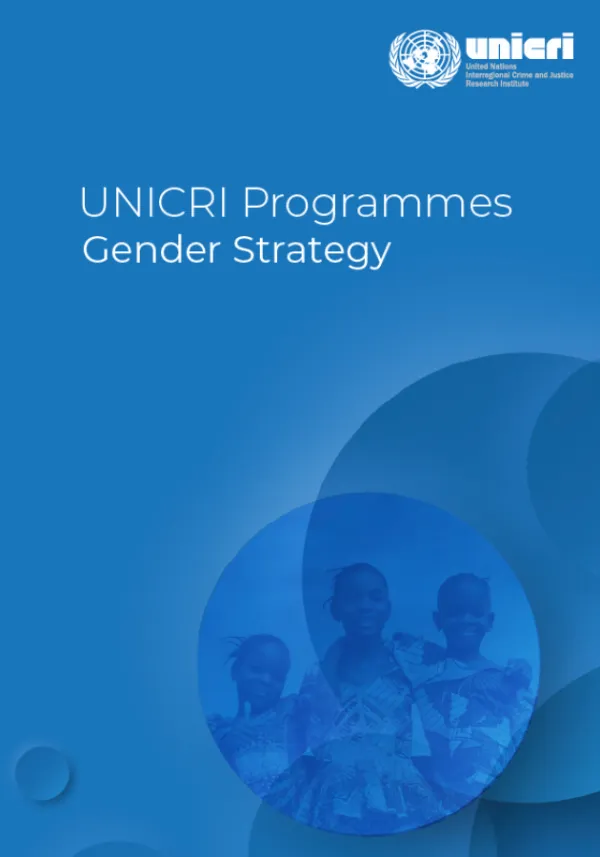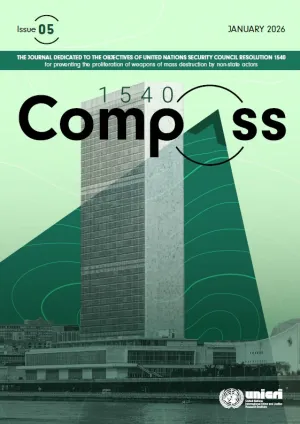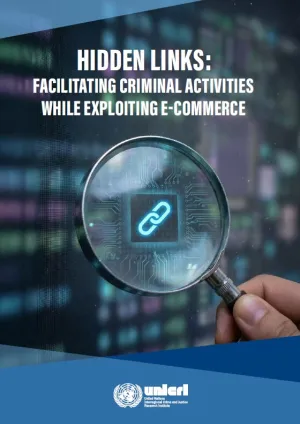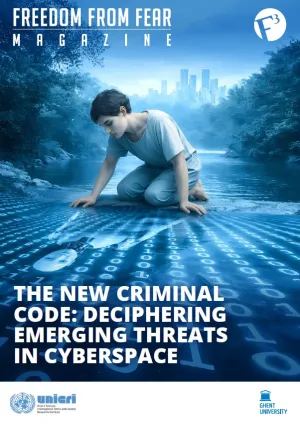The UN Interregional Crime and Justice Institute (UNICRI), as a valuable component of the UN system, is well-placed to be a key contributor to the 2030 SDG’s gender equality goals. Its mandate in crime prevention, justice, and security is grounded in the fundamental UN principles of human rights and the rule of law. This situates the principles of gender equality and women’s rights as an important part of UNICRI’s work.
This Gender Strategy complements UNICRI’s Strategic Programme Framework 2023-2026. It articulates how UNICRI will meet its commitment to gender as a cross-cutting theme set forth therein, and where it will focus its gender equality and women empowerment efforts and action. UNICRI’s unique comparative advantage as a research and training institute that complements its work with practice in crime prevention and criminal justice derives from the combined application of its specialized substantive expertise and approaches. They further provide complementary and strategic opportunities for gender equality outcomes through the Institute’s work, partnerships, and investments.
This Gender Strategy recognises that effective gender-specific action needs to be adaptive to diversity, in people, culture, and locality. This applies whether UNICRI is preventing violent extremism in the Sahel, combatting radiological and nuclear trafficking in Southeast Asia, or promoting responsible use of safer Artificial Intelligence (AI) in the digital realm – all examples of UNICRI programmes. As a living instrument,
the Strategy evolves and adapts to a rapidly changing world. This makes it ideally suited to the complex and dynamic areas of UNICRI’s work in transnational crime, security, and justice, including its myriad intersections. Furthermore, tools, guidelines, and resources have been included as an addendum to help guide its application and operationalise the Strategy’s objectives: to turn promises into action.
This Gender Strategy builds upon UNICRI’s strengths as agile, responsive, and targeted in its expertise, technical tools, and approaches. In addition, as a research institute for learning, knowledge, and innovation, UNICRI’s analytical work is well placed to support shifts towards new and better practices for gender equality, as well as emerging gender equality thinking and action. This includes understanding in programming contexts how individuals’ experiences of issues like security, crime, and justice are not only lived and perceived through sex and gender, but also other intersecting identities, such as age, race, ethnicity, religion, sexual orientation, disability, and legal status, as well as geographical affiliation.



